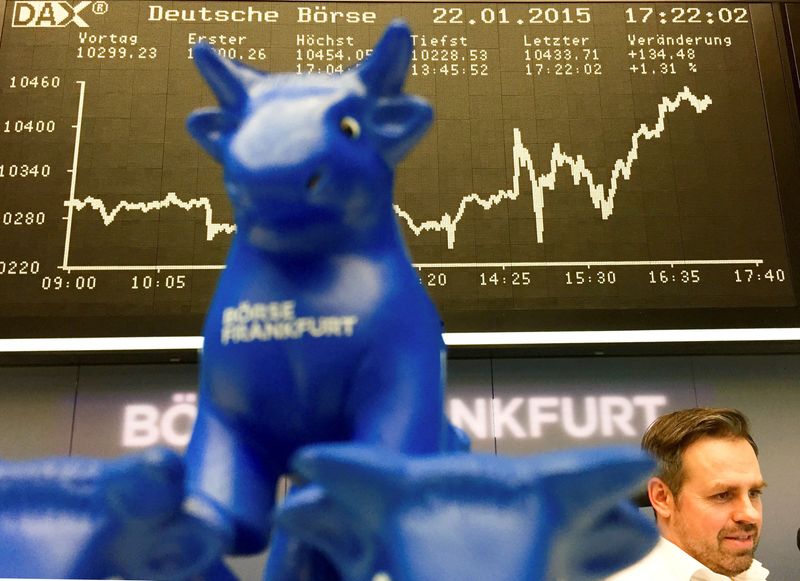By Peter Nurse
Investing.com - European stock markets are expected to open marginally lower Thursday, stabilizing after the Bank of England stepped in to buy U.K. debt, removing the fear of contagion across financial markets.
At 02:00 ET (06:00 GMT), the DAX futures contract in Germany traded 0.2% lower, CAC 40 futures in France dropped 0.1%, and the FTSE 100 futures contract in the U.K. traded 0.2% lower.
Investors have been rattled in recent weeks by soaring bond yields, as central bankers raised interest rates substantially to contain red-hot inflation, potentially tipping the global economy into recession.
These concerns were exacerbated on Friday by the new U.K. government’s plan to deliver historic tax cuts, likely paid for by hefty borrowing despite the country already running substantial twin deficits.
The Bank of England stepped in on Wednesday, after a run on the pound, announcing that it would start buying long-dated bonds, on a temporary basis, in order to calm the market chaos.
However, Europe’s economic outlook remains extremely uncertain, especially given the region’s ongoing energy crisis as winter approaches.
Sweden's coast guard has discovered a fourth gas leak on the damaged Nord Stream pipelines, a spokesperson said Thursday.
The European Union suspects sabotage was behind the leaks on the pipelines carrying gas from Russia to Europe and has promised a "robust" response to any intentional disruption of its energy infrastructure.
There are a number of ECB speakers on display Thursday, and investors will also study Spanish and Italian inflation data as well as Eurozone consumer confidence numbers.
Oil prices edged lower Thursday, weighed by a stronger dollar, but losses are minor after U.S. crude inventories showed a surprise drawdown last week, which dispelled some concerns over dwindling short-term demand.
Data from the Energy Information Administration, released late Wednesday, indicated that U.S. crude oil stocks fell by 215,000 barrels in the week to Sept. 23, with gasoline inventories logging a substantially bigger than expected 2.4-million-barrel decline.
Both benchmarks had rebounded around 4% over the prior two sessions after reaching nine-month lows this week as Hurricane Ian disrupted supply in the Gulf of Mexico. The Category 4 hurricane has hit the state of Florida, unleashing drenching rains and threatening extensive flooding, but has since diminished significantly.
By 02:00 ET, U.S. crude futures traded 0.9% lower at $81.44 a barrel, while the Brent contract fell 0.8% to $87.33.
Additionally, gold futures rose 1% to $1,653.80/oz, while EUR/USD traded 0.7% lower at 0.9667.
